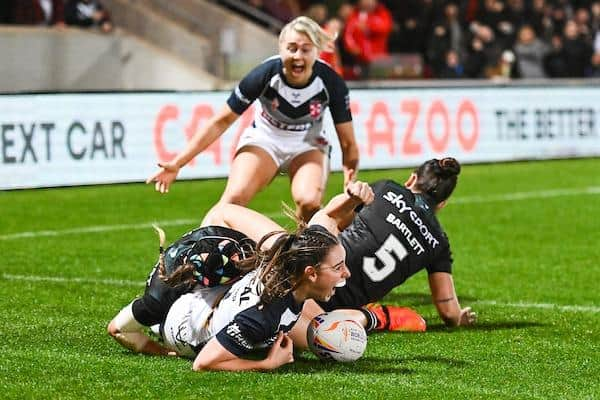International rugby league shake up sees Ashes return and World Cups every two years
and live on Freeview channel 276
A new international calendar until 2030 will see a stand-alone women’s World Cup held in 2028 and a men’s tournament two years later.
New Zealand men will travel to England for a Test series in 2027, with the Australian Kangaroos touring the following year.
Advertisement
Hide AdAdvertisement
Hide AdThe next World Cup has been pushed back a year after France’s decision to withdraw as hosts.


A reduced-sized tournament will feature 10 men’s teams and eight in the women’s and wheelchair competitions.
Sixteen men’s teams took part in last year’s event in England, with eight in the other competitions.
No decision has yet been made on the wheelchair World Cup after 2026. Hosting rights for the tournament in three years’ time will be announced later this year.
Advertisement
Hide AdAdvertisement
Hide AdToday’s (Thursday’s) announcements were made following an International Rugby League (IRL) board meeting in Singapore.


The eight Men’s quarter finalists from last year - Australia, Lebanon, England, Papua New Guinea, New Zealand, Fiji, Tonga and Samoa - will automatically qualify for the 2026 Rugby League World Cup.
The four semi-finalists from the women’s (England, New Zealand, Australia and PNG) and wheelchair (England, Wales, Australia and France) tournaments are also guaranteed a place.
Today’s (Thursday’s) announcements were made following an International Rugby League (IRL) board meeting in Singapore.


Advertisement
Hide AdAdvertisement
Hide AdIRL chairman Troy Grant said: “The IRL board has made these decisions to create more compelling content and secure the financial future of the international game.
“The cancellation of France 2025 has given us an opportunity to refresh the structure of the World Cup and associated tournaments as part of a long-term international calendar that all in the game have been desperately seeking.
“The Rugby League World Cup is the pinnacle of our sport and an elite tournament that all nations should aspire to take part in.”
He added: “The growth of women’s rugby league has been at such a phenomenal rate that the IRL board believes they deserve to have their own World Cup staged as a stand-alone tournament from 2028 onwards.
Advertisement
Hide AdAdvertisement
Hide Ad“With the Men’s World Cup cycle moving back a year, there will now be a World Cup every 24 months, but this is not a set-and-forget international calendar and there will be opportunities to capitalise on the future growth we believe these changes will generate.”
Simon Johnson, the RFL chairman said: “I am delighted we have been able to bring certainty and growth opportunities to the international game by agreeing a long-term calendar. This is a very exciting day for the game of rugby league.”